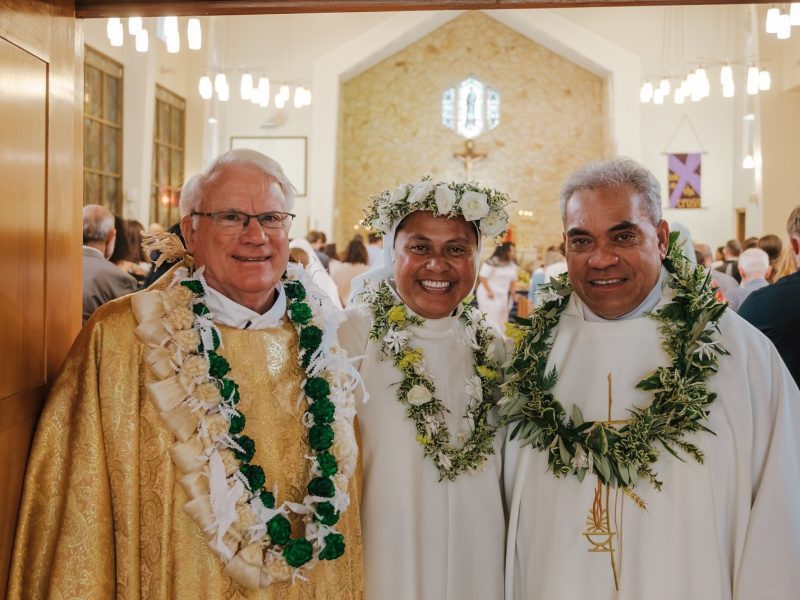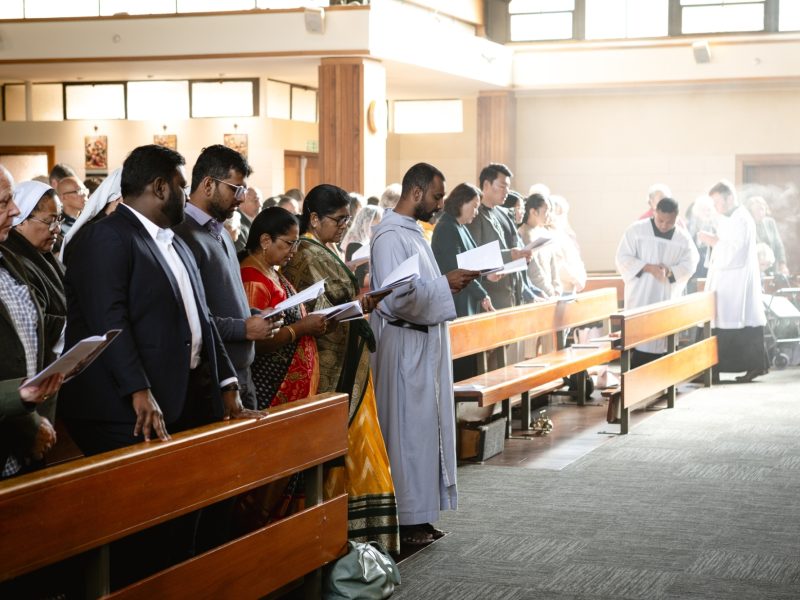Promoting Vocations in the Diocese of Christchurch
In 2011, Pope Benedict XVI wrote a message for the 48th World Day of Prayer for Vocations. He noted that “The ability to foster vocations is a hallmark of the vitality of a local Church.” Pope Benedict gave local dioceses five ‘best practices’ “culled both from the Gospel as well as from the recent experience of those local Churches that have shown remarkable vitality in fostering vocations”.
The first practice is prayer. Prayer was Jesus’ first action with regard to vocations. Before calling his first followers, Pope Benedict said, “Jesus spent the night alone in prayer, listening to the will of the Father. ... It is Jesus’ intimate conversation with the Father that results in the calling of his disciples.” This is why we had a big focus on praying for vocations during vocations awareness week, and why we have restored the practice of praying for priests and vocations on Thursdays in this diocese.
The second practice is to show young people the example of total commitment to Christ, with a willingness to sacrifice for Him in ordinary family, parish and diocesan life. Pope Benedict commented, “It is a challenging and uplifting invitation that Jesus addresses to those to whom he says: ‘Follow me!’ He invites them to become his friends, to listen attentively to his word and to live with Him.” Since the call of Christ always involves the paradox of losing one’s life to save it, we must learn to keep our gaze fixed on Jesus, growing close to Him, listening to his word and encountering Him in the sacraments so that we learn to conform our will to his.


The third practice is that there really is never a “vocations” or “calling” crisis in the Church, but rather a crisis in hearing that vocation and responding to it. “The Lord does not fail to call people at every stage of life, to share in his mission and to serve the Church in the ordained ministry and in the consecrated life,” he stressed. The problem is that in some areas and lives, the voice of the Lord can get
“drowned out by ‘other voices,’ and his invitation to follow Him by the gift of one’s own life may seem too difficult.” We need to encourage and support those who show clear signs of a call to priestly life and religious consecration, and to enable them to feel the warmth of the whole community as they respond ‘yes’ to God and the Church.”
Pope Benedict’s fourth point is the “crucial role bishops have in fostering vocations”. In this regard we are blessed to have Bishop Michael Gielen as our bishop. Already he has invested time and effort into the promotion of vocations.
As Vocations Coordinator, I am pleased to work alongside Fr Tien Cao as the Vocations Director.
Lastly, the Pope noted the important role of priests, families, catechists and leaders of parish groups, reminding them that “every moment in the life of the Church community — catechesis, formation meetings, liturgical prayer, pilgrimages
— can be a precious opportunity for awakening in the People of God, and in particular in children and young people, a sense of belonging to the Church and of responsibility for answering the call to priesthood and to religious life by a free and informed decision.” In this diocese, we are blessed with so many wonderful families. Let us continue to pray for them and support them in any way we can.
Fr Tien and I are always available to talk with anyone considering the possibility of a vocation to the priesthood or religious life. Later in the year there will be a vocations retreat for men, and another for women. Likewise, please contact us with any ideas you have for the promotion of vocations. May I thank all those who prayed for Vocations during Vocation Awareness week and urge you to continue to do so.
https://cdoc.nz/what-we-do/voc...
by Matt O’Connell
Vocations Coordinator - 03 366 9869, vocations@cdoc.nz
